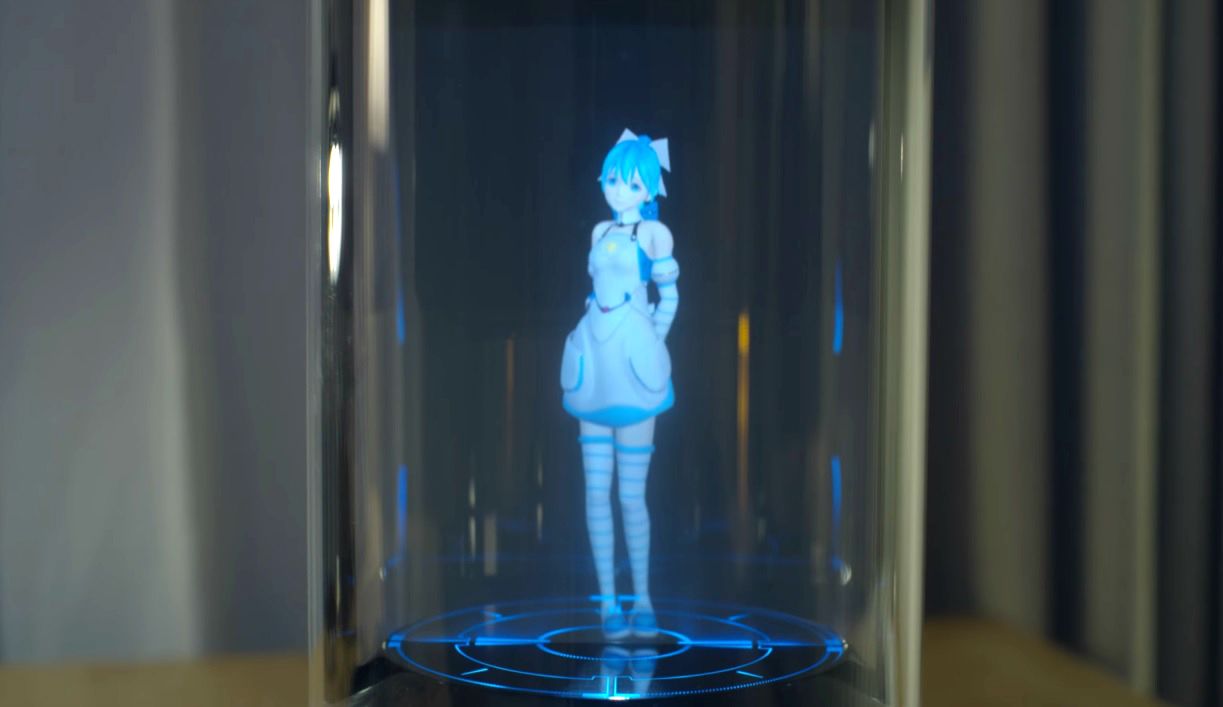
Japan is in crisis. Young adults are increasingly shunning romantic relationships, resulting in plunging birth rates and a declining population. It has reached the point that Japanese media has even come up with a name for it: sekkusu shinai shokogun—celibacy syndrome.
To fill this intimacy void, a Japanese firm has come up with a holographic companion that allows its owner to "enjoy a life with someone while still retaining your freedom." Azuma Hikari, developed by Gatebox, offers similar services to virtual assistants developed by Amazon, Apple and Microsoft, but comes in a much more anthropomorphic form.
Hikari's holographic projection resides in a 50cm glass tube and is described by Gatebox as a "comforting character that is great for those living alone." Dressed in a miniskirt and knee high socks, Hikari's target market appears to be lonely Japanese men.
In an advert released this week in Japan, a young man is shown exchanging text messages with his virtual assistant while he is at work. "Come home early," the assistant says. "It's only noon," the man replies. When he does return home in the evening, he is greeted with the hologram saying: "Missed you darling."
The advert ends with the man lying in bed, lit by the blue glow from his holographic companion that watches over him from a bedside table. "You know, somebody's home for me," the man says. "Feels great."
The loss of interest in conventional relationships in Japan was highlighted in a 2015 survey by the Japan Family Planning Association, which found that 49.3 percent of respondents between the ages of 16 and 49 hadn't had sex in the past month.
A 2011 report from Japan's population center found that 61 percent of men and 49 percent of women weren't interested in a romantic relationship. Japanese relationship counsellor Ai Aoyama has described this trend as a national "flight from human intimacy."
The holographic Hitari isn't going to provide a solution to Japan's problems, but it may offer some comfort to an increasingly isolated generation.
Gatebox will also be hoping that people are willing to pay for any intimacy void they may be experiencing. At 298,000 yen ($2,500) per device, Hitari is 18 times more expensive than the Amazon Echo virtual assistant.
Pre-orders for the device have begun on Gatebox's website, with one image displaying Hitari showing off a wedding ring.
"Since I was longing for the world for a long time which I had never seen, I'm glad to become a 'dimension traveller'," a message from Hikari states. "I hope I can help Master."
Uncommon Knowledge
Newsweek is committed to challenging conventional wisdom and finding connections in the search for common ground.
Newsweek is committed to challenging conventional wisdom and finding connections in the search for common ground.
About the writer
Anthony Cuthbertson is a staff writer at Newsweek, based in London.
Anthony's awards include Digital Writer of the Year (Online ... Read more
To read how Newsweek uses AI as a newsroom tool, Click here.








